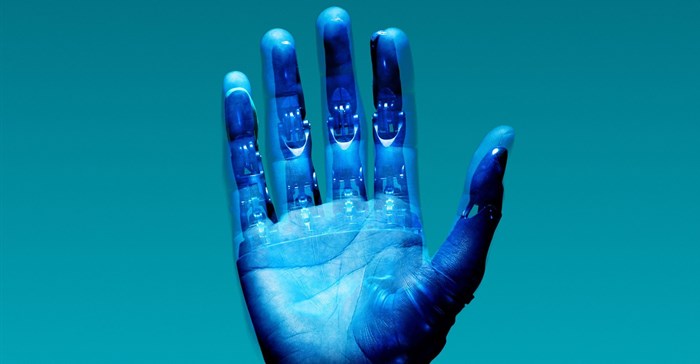
The initiative is being driven by Save7, a non-profit organisation founded by students, that aims to share the message that every South African has the potential to save seven lives by donating their kidneys, heart, and lungs after they die.
Third-year medical student, Jonty Wright (20), founded Save7 after meeting patients in hospital who were desperately awaiting organs. “There was nothing more doctors could do for them, and they were literally waiting to die. Something felt deeply wrong with that, and I knew we had to do something,” said Wright.
He turned to technology. First he built a website to raise awareness, and then taught himself to programme an AI chatbot to answer questions about organ donation in South Africa. “Think of it like ChatGPT, except it’s an expert in the field of organ donation,” he said of his invention.
Wright’s graphic designer parents helped bring the Save7 brand to life with bold designs and conversational style that appeals to a young, digital-savvy audience.
“Awareness about organ donation is especially low among the younger generation,” explained Wright. “We needed to make this difficult topic easier for the public to engage with, so we focused our narrative more on ‘multiplying life’ in the present, than on thinking about death in the future.”
In addition to providing information and answering questions, Save7 has also partnered with the Organ Donor Foundation of South Africa to allow users to register as organ donors in less than a minute. “You can use Save7.org to sign up and leave a personalised message for your next of kin, which, along with your signature, creates a legally recognisable testament of your commitment to donate your organs. The entire process takes less than a minute and is absolutely free. This is a first in South Africa!”
The Save7 team has also made it easy for users to encourage their friends and family to register as donors and have the same conversations with their family using a WhatsApp API. As Wright put it: “By signing up, you can save seven lives, but by encouraging your network to do the same thing, you can save exponentially more.”
The crew is currently running a campaign that aims to reach over one million South Africans by the end of August, which is internationally recognised as Organ Donor Month.
But its efforts don’t stop at raising awareness. Since its inception, Save7 has developed backend data systems that simplify the complex administrative processes involved in transplant referrals, and patient support groups. “As you dive deeper into the organ-donation ecosystem in South Africa, you discover that there are many gaps for potential donors to fall through, such as inefficient referral systems, lack of centralised databases and poor patient support, to name a few.”
Save7 has teamed up with VulaMobile to create an easy-to-use referral portal for doctors to refer potential donors to transplant units. “The point is to make this referral as easy as possible for healthcare professionals. It’s truly a tragedy when willing donors with healthy organs are missed because the current referral process is inconvenient for doctors.”
The Save7 team also established the first renal patient support group at Tygerberg Hospital, which now boasts 50 members. “It’s easy to get caught up in solving the big problems and forget about the people in front of us.
“Our goal with the support groups is not only to provide a much-needed community for our patients, but to create a framework that other public hospitals can use to follow in our footsteps,” says Naazim Nagdee, Save7’s vice-president.
The support group is driven by former patient and transplant recipient, Melissa Jacobs.
“When I was on dialysis, I really would have appreciated someone's support: someone coming to educate me about my condition, how to look after my body, how to be self-sufficient, and most importantly, how to handle the emotional and psychological impact that this condition has on me,” said Jacobs. “After my transplant my doctor told me about Save7 and I saw the opportunity to get involved and provide for the needs of those still on dialysis."
Elmin Steyn, transplant surgeon and head of surgery at Stellenbosch University and Tygerberg Hospital is full of praise for her students’ initiative. “It is heartwarming to see compassionate young medical students deploy AI technology and social media to help the less fortunate. This campaign has the potential to boost organ donation not only in South Africa, but worldwide. Everyone should support it!”
Their goal is to create a system that can easily be replicated and implemented by other students, doctors, and transplant co-ordinators worldwide.
“We're striving for a plug-and-play solution,” said Sachen Naidu, Save7 treasurer. “This mission involves meticulously documenting their progress, analysing what strategies proved effective and what fell short. They aim to provide structural and organisational templates that could aid future organ-donation initiatives across the continent.
“We were inspired by the principle of open-source software – it lays out the basic framework for others to copy and paste to their own unique environments,” Naidu explained. The Save7 team believes that by sharing its campaign experiences in a developing country, it can simplify the process for others in similar situations. “We like to think of it as developing a care package that can be deployed anywhere.”